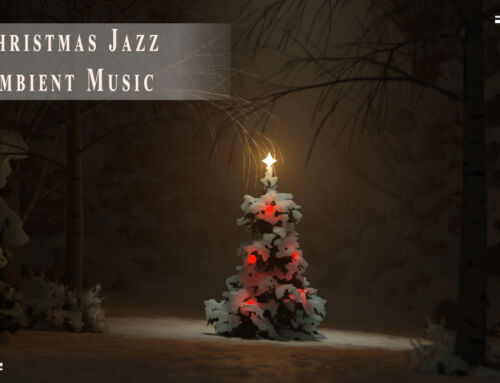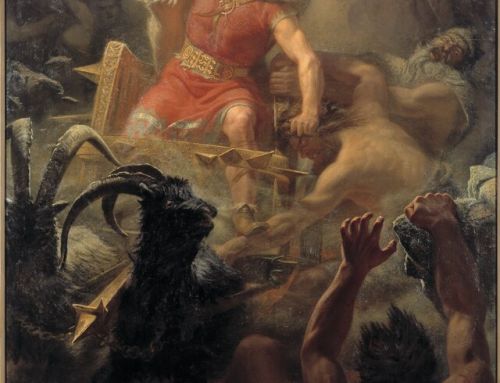Worldbuilding Categories
 For anyone new to worldbuilding, breaking the task of creating a whole story world down into manageable chunks can seem insurmountable. The challenges will be different depending on your genre, the type of story you want to write (a military SF adventure will need a lot of detail on military organisation, for example) and your own preferences – do you want to focus on social upheaval in your story, or some past era and how it relates to the present? Robert Jordan’s Wheel of Time, for example, is as much about the previous age – the Age of Legends – as the current time period; the characters strive to match the achievements of long dead heroes.
For anyone new to worldbuilding, breaking the task of creating a whole story world down into manageable chunks can seem insurmountable. The challenges will be different depending on your genre, the type of story you want to write (a military SF adventure will need a lot of detail on military organisation, for example) and your own preferences – do you want to focus on social upheaval in your story, or some past era and how it relates to the present? Robert Jordan’s Wheel of Time, for example, is as much about the previous age – the Age of Legends – as the current time period; the characters strive to match the achievements of long dead heroes.
Let’s start with the basics: some categories of information that you can use as starting points for your imagination. Almost all stories can benefit from at least some basic detail in the following areas: society, history, military organisations, concepts/principles, and politics. There’s one final element that every novel needs, and also makes a great starting point: a timeline.
Timeline
The level of detail in your timeline will vary depending on the story. Expansive SF stories like Peter F. Hamilton’s Confederation novels have pages of important dates spanning centuries of history. Contemporary era SF and Fantasy novels with a story world subtly different to our own reality are at the other end of the scale. The history is already there for you – our world’s history – and you may need only a handful of dates where differences to reality occur. For example, Ben Aaronovich’s Rivers of London series shares our own history, just with a few differences such as a key magical battle that took place during World War II.
A good way to start your timeline is by listing the key dates that affect your story. These could be the discovery of magic, a first manned spaceflight beyond the solar system, or the invention of a technology that’s important to your story. With the key dates down you can then start to add further detail, such as dates of birth/death of main or historical characters, and the dates of any other events you think are significant.
Society
 A broad category like society is a good next stop. What kind of society (or societies) are present in your story? Are they democracies, autocracies, or something altogether new? How are they run, and by whom? Do certain societies in your story have their own cultural traits, a particular attitude or philosophy, or other defining characteristics?
A broad category like society is a good next stop. What kind of society (or societies) are present in your story? Are they democracies, autocracies, or something altogether new? How are they run, and by whom? Do certain societies in your story have their own cultural traits, a particular attitude or philosophy, or other defining characteristics?
How do societies treat their ill or disabled? Are they a martial culture, or pacifists? Do they, for example, favour a particular colour in their clothes, or consider one particularly unlucky? What is their approach to law and order? How rife is injustice, and does it only affect certain groups like the poor? As you begin to flesh out the societies in your story, they’ll begin to come to life more – societies standing out like individual characters in your mind.
Politics
Politics is your next category. There’s a little crossover with society, so unless your story is one of great political intrigue you can keep this section nice and small. What kind of government do the civilisations of your story use? Are they all the same? If monarchs have absolute rule, are there any checks and balances upon their power? Are there factions in competition for favour or power?
You don’t have to write dozens and dozens of pages on this, but some concise notes covering the important points for your story world make a good start; you can always revisit this topic later.
Concepts, Principles, and Beliefs
This is a broader category than politics, but no less essential. Do particular groups (social strata, factions, etc.) hold to certain principles? Is there, for example, a martial tradition with a code of honour? Are there any religions? What do they believe, and how do they interact with other faiths (or those with no faith)? Have certain technologies or events affected people’s beliefs? Do societies or groups have collective morals, and what is the price for transgression of those morals?
Are there theoretical technologies present in your story universe? Is something like faster than light (FTL) technology possible? Or does some kind of quantum entanglement technology allow instantaneous communication over vast distances? Has wormhole technology been discovered, and does it allow instantaneous travel between two points, or is there some kind of subspace that must be traversed?
How have these technologies affected people and society in general. For example, in various series in the Star Trek universe, replicator technology has rendered money redundant – when you can create anything you need just by asking, what purpose would money serve? Any technologies you choose to have can affect people and society over time, so you’ll need to consider the ramifications of any technologies you use (the absence of technologies can be equally significant).
Military
 As a world without some kind of warfare is almost inconceivable, putting some time into the armed forces of your story world is important, if not essential. Even in an age of peace, some kind of military force would likely be needed, if only as a deterrent. If soldiers and warfare won’t feature heavily in your story, you can sketch out the basic details without delving into the minutiae of individual unit histories.
As a world without some kind of warfare is almost inconceivable, putting some time into the armed forces of your story world is important, if not essential. Even in an age of peace, some kind of military force would likely be needed, if only as a deterrent. If soldiers and warfare won’t feature heavily in your story, you can sketch out the basic details without delving into the minutiae of individual unit histories.
As a starting point, how are the armed forces structured? Is there a single branch such as the Navy? Or are there other branches like the army and air force? Or perhaps there are others, branches that fulfil a specific role. Perhaps there’s crossover, with which branch has responsibility determined by specific (and perhaps arcane) rules.
Perhaps a single ruler doesn’t preside over the entire military – princes and princesses might each command a branch of the armed forces, for example.
The structure of the military is next. You may want to consider how many people are in a unit like a regiment or an air wing. A list of ranks might also be useful, particularly if your military structure is very different to the norm. A list of notable units or ships, both present and historical, adds a little more detail to your military; you can reference such details in your manuscript, and it will help bring the story world to life.
Some military history for your story world will also add depth. Famous (or infamous) battles, ships, regiments, heroes, and commanders are all useful little details you can reference in your manuscript. If you’re writing Military Sci-Fi or a war-heavy Fantasy, you can flesh out more details: names of units and their histories; fleets and their constituent vessels; campaigns and battles.
Magic/Technology
Contemporary Fantasy favours magic systems that have consistent rules. If your story features magic, then you should be clear on how it works and its limitations. If, for example, there are no limits on magic usage, a single wizard could flatten an entire army while sitting comfortably some miles away. You should consider how magic works (spells, potions, incantations) and its limitations. What can’t magic do, and why? Is there a cost to magic users, such as taking a year off their life for every spell?
There are similar questions to answer for technology. What can technology do in your story world, and what – if any – are its limitations? There is some crossover with the Concepts section, but you may want to delve deeper into the possibilities technology offers for your story – perhaps you can bring a new twist to the evolution of AI in your story world, for example, and give the reader something less clichéd than the standard SF fare.
How advanced is technology? Iain M. Banks’ Culture novels take place in a post-scarcity Utopia where technology has few restraints. At the other end of the scale, the Warhammer novels take place in a dystopian future where technology has regressed, and ancient technology is both more advanced and barely understood in the present.
History
 Finally, you may want to expand on the history that you sketched out in your timeline. Are there particular events that are important to your world or your characters? Do you need a family tree for your rulers? Depending on what you want to focus on in your story, you may want to go back and add in extra details – more events for military history, for example, or key events that shaped society. There’s no rule as to how much detail you should add, so just finish whenever you’re happy; you can always come back and add more during the drafting of your manuscript.
Finally, you may want to expand on the history that you sketched out in your timeline. Are there particular events that are important to your world or your characters? Do you need a family tree for your rulers? Depending on what you want to focus on in your story, you may want to go back and add in extra details – more events for military history, for example, or key events that shaped society. There’s no rule as to how much detail you should add, so just finish whenever you’re happy; you can always come back and add more during the drafting of your manuscript.
Limitless Imagination
There are no real rules for how to go about worldbuilding, and the categories covered here are suggestions rather than imperatives, broad groups to get you thinking about how your story world fits together. You can add others as you please with as much or as little detail as you like. For those who love a little more organisation and structure, there are any number of worldbuilding templates out there to satisfy you, or you can create your own.
A little worldbuilding can go a long way. If you’ve thought about your story world before starting to write, you’ve already answered a lot of questions that you’d otherwise be asking yourself later on. And with the setting for your story clear in your mind, you can concentrate on the story and characters, knowing you already have the backdrop nailed.






Leave A Comment